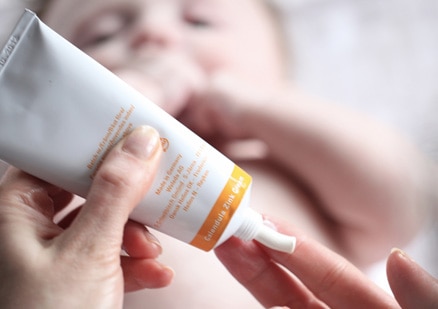Feeding your newborn

Breastfeeding: Breast milk is all the food your baby needs for at least the first 6 months. We encourage all new parents to breastfeed, but you might want or need to feed your baby both breast milk and formula — many new parents do.
Baby feeding tips
If you can, breastfeed your baby whenever they appear hungry. For the first few weeks, that means every 1½ to 3 hours — day and night. Each feeding may last from 15 to 60 minutes, depending on whether your baby is awake and hungry or sleepy.
If your baby is a very good sleeper, you might have to wake your little one up to nurse. Your newborn should feed 8 to 12 times every 24 hours.
It might take some time and practice before you and your baby find your rhythm. If you need help, give us a call. Our advice line is available 24 hours a day, 7 days a week.
Bottle-feeding: Infant formula can also give your baby the nutrition they need to grow up healthy and strong. If you plan to feed your baby both formula and breast milk, we recommend waiting 6 weeks before introducing formula to build your body’s capacity for milk production.
Babies digest formula more slowly than breast milk. If you’re not breastfeeding at all, your baby might need fewer feedings than a baby who nurses. But you’ll also need to spend time organizing and planning so you have plenty of clean bottles and formula on hand. Here’s how it works:
- Feed your baby 2 to 3 ounces at each feeding. It won’t take long for you to be able to sense whether your baby is still hungry or full. (Follow your pediatrician’s instructions if your baby has a special feeding plan.)
- Keep prepared formula in the refrigerator. Throw it away if it sits out for more than an hour.
- Avoid using formula that was in the baby’s bottle but not finished during the last feeding.
- Warm formula by setting the bottle in a bowl of warm water. Do not heat up formula in a microwave — it can easily burn your baby’s mouth and throat.


